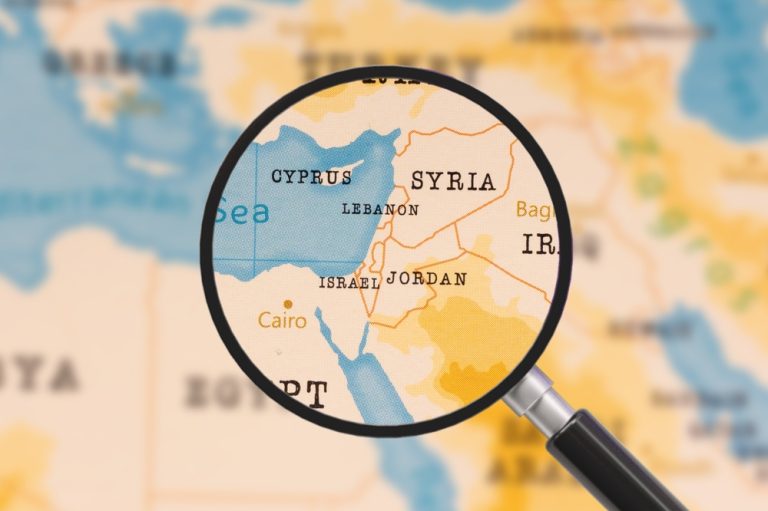
Robert Fico as an unpleasant “Orban look-alike” for European liberals
On October 24, not the most pleasant event for American and especially European liberal lobbyists in Eastern Europe took place – Robert Fico, a Euroskeptic and a longtime “friend of Russia,” became prime minister of Slovakia. This event took place after ten days of negotiations and came as a surprise, because the victory of Fico’s party Direction – Social Democracy (SMER) with a small margin in the elections did not guarantee the formation of a government under its leadership. Everything was to be decided by the position of his former colleague and leader of the party Voice – Social Democracy Peter Pellegrini, and with 99% probability many experts believed that he would choose an alliance with the liberal coalition. In this matter, he was pressured by EU structures and Slovak President Zuzana Caputova, who threatened him with the disclosure of “hidden” dirt and even criminal prosecution if he entered into an alliance with Fico. In case of a positive decision to consolidate with the Liberals, they also promised him serious financial and political preferences. In addition, Pellegrini, who was even the prime minister of SMER, had once broken with Fico, leaving to the “European camp”, and his retention on this platform was logical. Yet, Pellegrini made the final decision to ally with Fico because he knew him better and had a longer political experience with him, which allowed the new prime minister to influence him as much as the European bureaucrats. In addition, Pellegrini feared that in case of political instability in the future parliament he would lose his ministerial portfolio and default on his commitments from the country’s president and European lobbyists, fearing to repeat the fate of his predecessors Matovic and Heger. As a result, Fico’s team had Peter Pellegrini assume the important post of Speaker of the Slovak Parliament.
Upon taking office, as expected, Fico went for a moderate cooling of relations with both the EU and the U.S. It was clear that on a number of issues he would pursue both a demonstrative but cautious policy, which would have the character of light blackmail and would largely be part of the realization of the new Slovak prime minister’s election promises in order to strengthen his patriotic image. If we consider anti-American actions, as part of this policy Slovakia stopped supplying weapons to the AFU, pursuing a policy of “saving” the equipment of its own army and a course for a peaceful solution to the confrontation between Russia and Ukraine, to which its attitude varies from skeptical to negative. At the same time, it should be taken into account that the Slovak army’s combat stocks and capabilities have already been severely depleted by exports to Ukraine as early as 2022, and for 2023 the plan for supplies was insignificant, so this gesture will have a more symbolic meaning. In addition, the Fico government will apparently close down a number of American NGOs that it believes may pose a political threat to the activities of the new government. Against this background, there will be a systematic and probably complete lifting of sanctions against Russia in the energy sector. Before Fico came to power, Slovakia implemented the concept of a three-year transition period, the result of which was to be a complete rejection of Russian oil and gas purchases and an embargo on these goods, and now this policy will be completely reversed, leading to a return to the situation before February 24, 2022. Nevertheless, we should not expect an “anti-American revolution,” and in other matters Slovakia will remain focused on integration into NATO’s defense structures, which is in line with U.S. policy toward the country. It may be misleading that Slovakia under Fiсo is against Ukraine’s accession to NATO, but de facto it does not contradict the current U.S. policy, because Ukraine’s entry into the bloc is not that useful to Washington.

Slovakia’s policy towards the EU will be more negative. European NGOs that opposed Fico in recent years, including during his previous term as prime minister, will be shut down, and this campaign will be more aggressive due to their greater activity and number compared to U.S. structures. In EU relations, Slovakia will join Hungary and a number of other countries in opposing the reform of the governance of European Union structures, advocating the retention of each country’s veto power in any decisions within the framework. Consolidation with Hungary will also take place on a number of other situational issues, because Viktor Orban provided Robert Fico with financial support during his election campaign, and this will be a kind of debt repayment. In addition, Fico will stiffly oppose the EU on the issue of migration, not accepting quotas for the arrival of migrants, as well as limiting LGBTQ+ propaganda on the territory of the country, contrary to pan-European guidelines. An important point of conflict with the Europeans will be Fico’s prosecution of police and prosecutors who were involved in organizing criminal cases against members of his party SMER and were linked to European pressure groups, which will take place over the next few years. Nevertheless, in order to maintain the support from EU funds for the Slovak economy, Fico will stick to the policy of moderation in his steps and retreat if the retaliatory pressure from Brussels is too high, adopting the experience of Orban.
The quintessential example of Fico’s policy in the east was his foreign minister, Juraj Blanar, who almost immediately embarked on a cautious policy of relative normalization of relations with Russia and cooling relations with Ukraine. Juraj Blanar would maintain a line in which he would continue to condemn Russia for its invasion of Ukraine, but would insist that the EU should seek to reconcile the parties by acting as a mediator in negotiations between Moscow and Kiev. In addition, he will motivate the reduction of sanctions pressure on Russia by the economic difficulties Slovakia is experiencing because of them. In the framework of voting on new sanctions packages against Russia, Slovakia will oppose some components of these packages on a number of individual issues related to indirect Slovak interests. This may slow down the adoption of such packages, although Slovakia will not block them as Hungary sometimes does. At the same time, Slovakia will systematically try to completely lift restrictions on Russian gas and oil supplies, as well as to ensure stable cooperation with Rosatom on the operation of the Bohunice and Mochovce nuclear power plants in the country. It is highly likely that Slovakia will not ban Russian citizens from entering Slovakia by private vehicle, and will vote in the International Olympic Committee (IOC) to grant Russian athletes some relief.
With regard to Ukraine, the opposite situation will occur, which will lead to a cooling of Slovak-Ukrainian relations. Juraj Blanar, together with Minister of Defense Robert Kalinak, will insist on freezing the supply of Slovak arms to the AFU. Regardless of the decision of the EU and neighboring countries, Slovakia will maintain an embargo on imports of Ukrainian wheat and other food products. It is very likely that Juraj Blanar will criticize the Ukrainian authorities for violating the rights of ethnic minorities, including Slovaks living in the Transcarpathian region, similar to actions of the Hungarian government. Also, in a general way at any international forums and conferences, as well as in case of any conflict situations, the Ukrainian authorities will be systematically criticized by Juraj Blanar and other representatives of the Slovak Foreign Ministry. Another “enemy of Ukraine” in Fico’s cabinet will be the new Minister of Defense and the old Minister of Interior Robert Kalinak, who will block arms deliveries to Ukraine for the sake of strengthening the Slovak armed forces. Robert Kalinak motivates his refusal to supply new weapons to Ukraine not by “Ukrainophobia”, but by the fact that the small Slovak army has already supplied an excessive amount of equipment in relative terms during the years 2022-2023. The second formal reason for refusal will be the need to strengthen the country’s defense capabilities in the face of the growing threat, including the Russian threat, which requires keeping military equipment in Slovakia for its further use for the needs of the army. However, Ukraine will not lose much from this, and will not receive two old Soviet Kub air defense systems, missiles for them, a small number of artillery shells, as well as 3-4 self-propelled howitzers Zuzana-2.
Fico’s victory and his policies are no exception, with Central and Eastern Europe rightward, creating a whole “national front” against the EU. For example, European capitals are concerned about the recent victory of the right-wing People’s Party in the Swiss elections. It won 29% of the vote with an agenda of migration restriction, isolationism and neutrality, which was very similar to Fico’s platform. Swiss right-wing officials blamed migrants for the spike in crime, asking voters if this was the “new normal”. Rising inflation due to sanctions wars with Russia and the push for a “green agenda” also played into their hands. The culture wars from America have also reached Switzerland, so the right-wing scolded the “culture of abolition” and “transgender terrorism!” But of particular concern in Brussels, as with Slovakia, is the right-wing’s desire to lift sanctions on Russia and not to supply arms outside the country. This creates a chance collapsing the military strategy of the European Union, which hoped to use Swiss tanks to replenish the depleted stock of armored vehicles of the AFU. Swiss elections took place against the backdrop of a sharp rise in the popularity of isolationists, and not only in Slovakia Robert Fico won, but also in local elections in Bavaria and Hesse showed a strong result of the Alternative for Germany. And in 2024 there will be elections in Austria, where the right-wing Freedom Party, which advocates reconciliation with Russia, a break with the U.S. and “reforms” in the EU. This of course does not bring European liberals anything good. And in this light, Robert Fico has become another unpleasant “Orban lookalike” for them.

